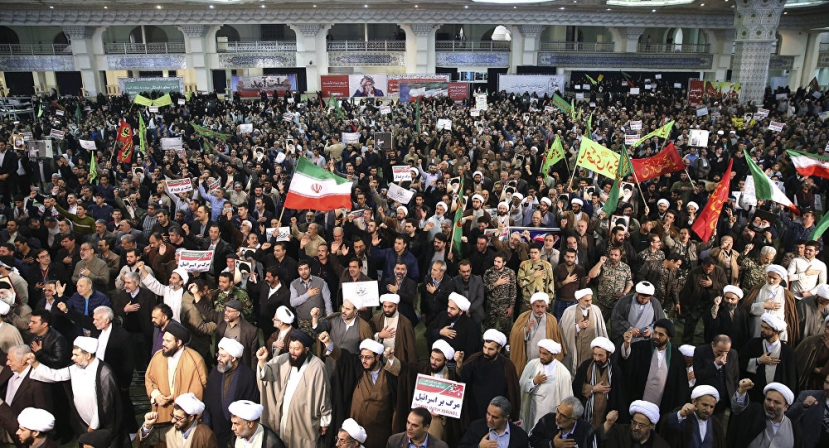The Iranian people will counter the "small and minority group" of rioters trying to exploit the ongoing protests against the backdrop of the deteriorating economic situation to chant slogans in violation of law and insult the values of the Islamic Revolution, President Hassan Rouhani said Monday.
"The enemy will not remain silent vis-à-vis the nation's progress and greatness, but there are also deceived people among the protesters who have rightful demands," Rouhani said at a meeting with Iranian lawmakers.
The president highlighted that the enemies of Iran are behind the current situation, who cannot tolerate Tehran’s diplomatic achievements, especially in the standoff with the United States and Israel.
Rouhani also called for reinforcing national unity and improving interaction between the three branches of powers, as the best way to address the issue.
"I believe that what happened in recent days was apparently a type of threat, which should be turned into an opportunity," he added.
Several major cities in Iran, including Tehran, Mashhad, Isfahan and Rasht, have been hit by mass protests since December 28, 2017. People have taken to the streets to protest against unemployment, poverty, and the rising cost of living.
As many as 20 people have been killed during the protests, including nine people killed in overnight clashes, the Associated Press reported, citing Iran's state television.
On Monday, Rouhani promised to intensify efforts in order to resolve existing economic problems, unemployment, inflation as well as air pollution in the country. Earlier, the Iranian president said that people have the right to express their discontent with the authorities, but underscored the need for calm and restraint.
The Supreme National Security Council also said Monday that the protests have been backed by several foreign countries, including the United States, the United Kingdom and Saudi Arabia, with nearly 30 percent of the new anti-Tehran hashtags on social media created in Saudi Arabia. Security Council secretary Ali Shamkhani said that the protests were part of a "proxy war" against Iran.

